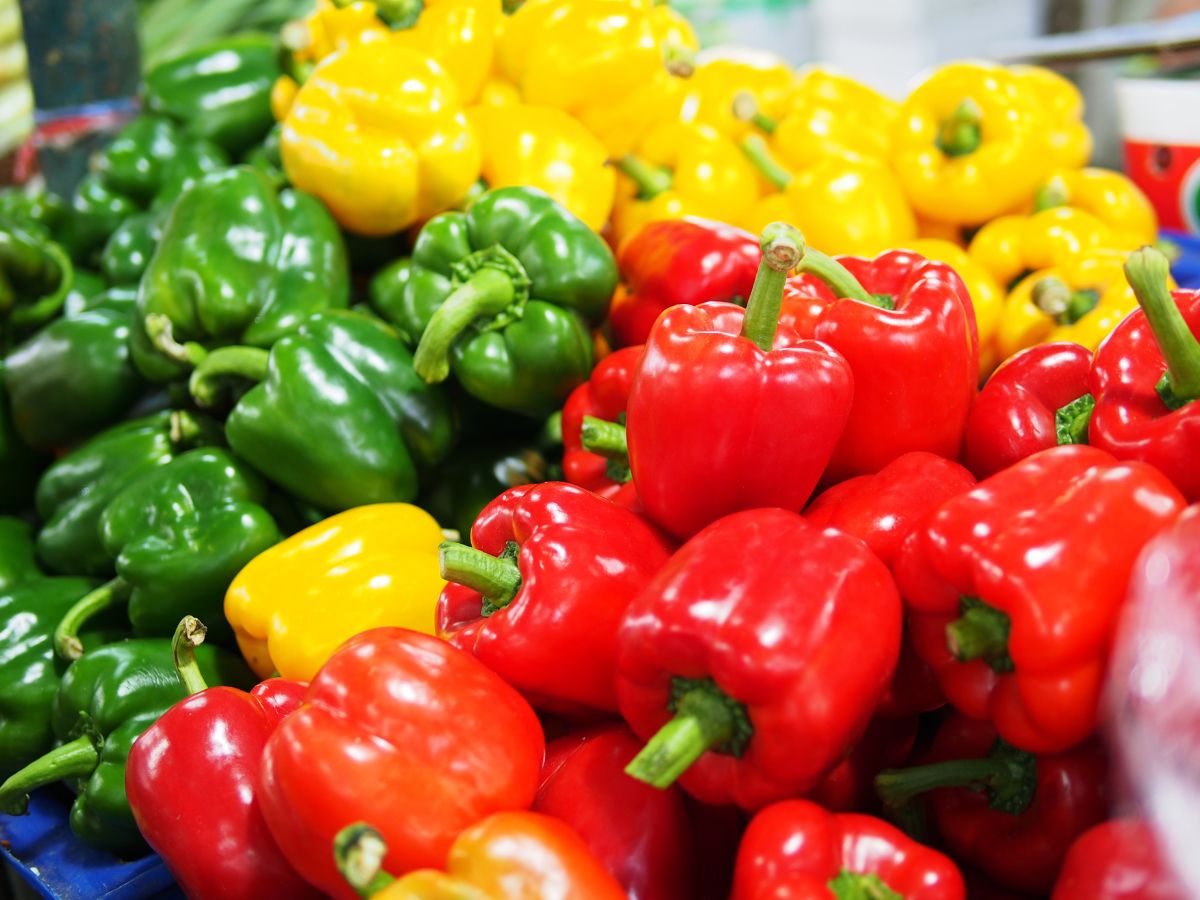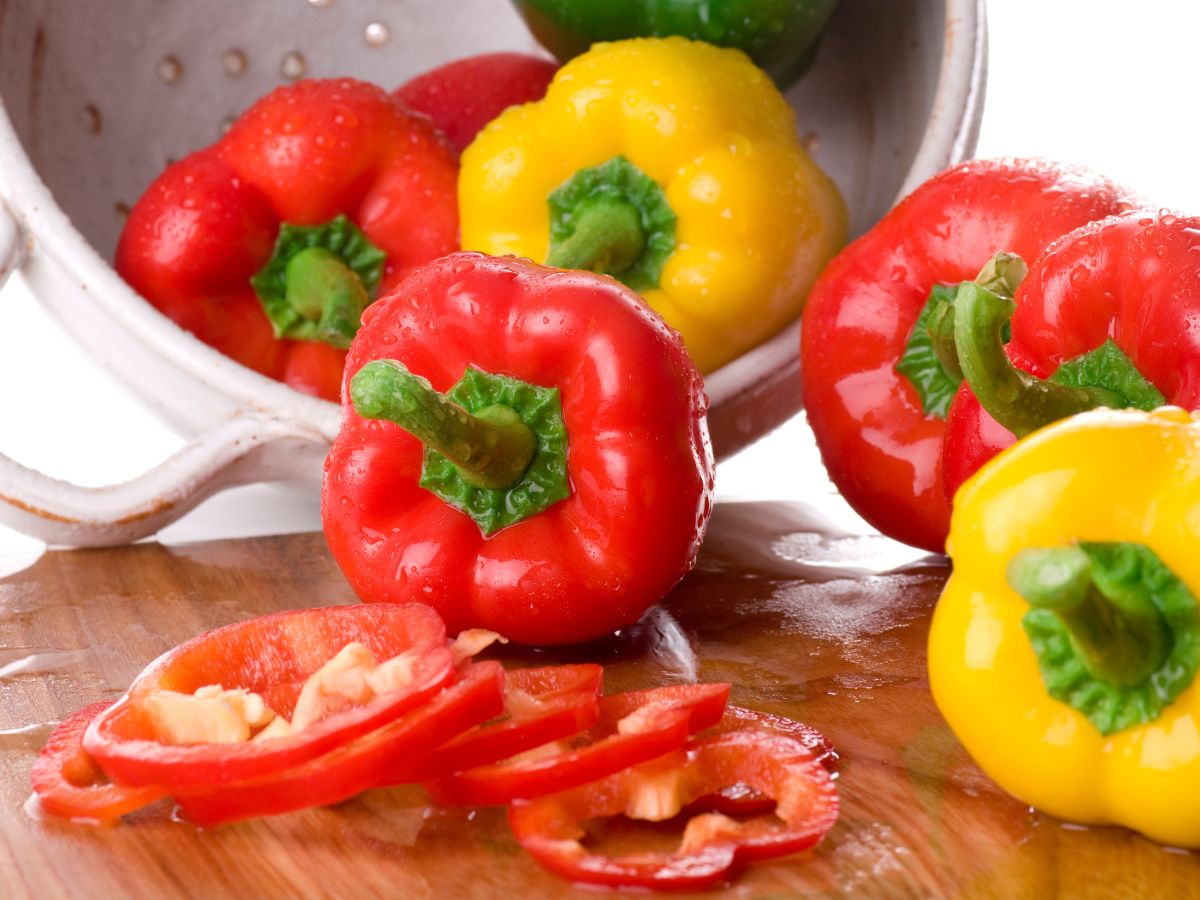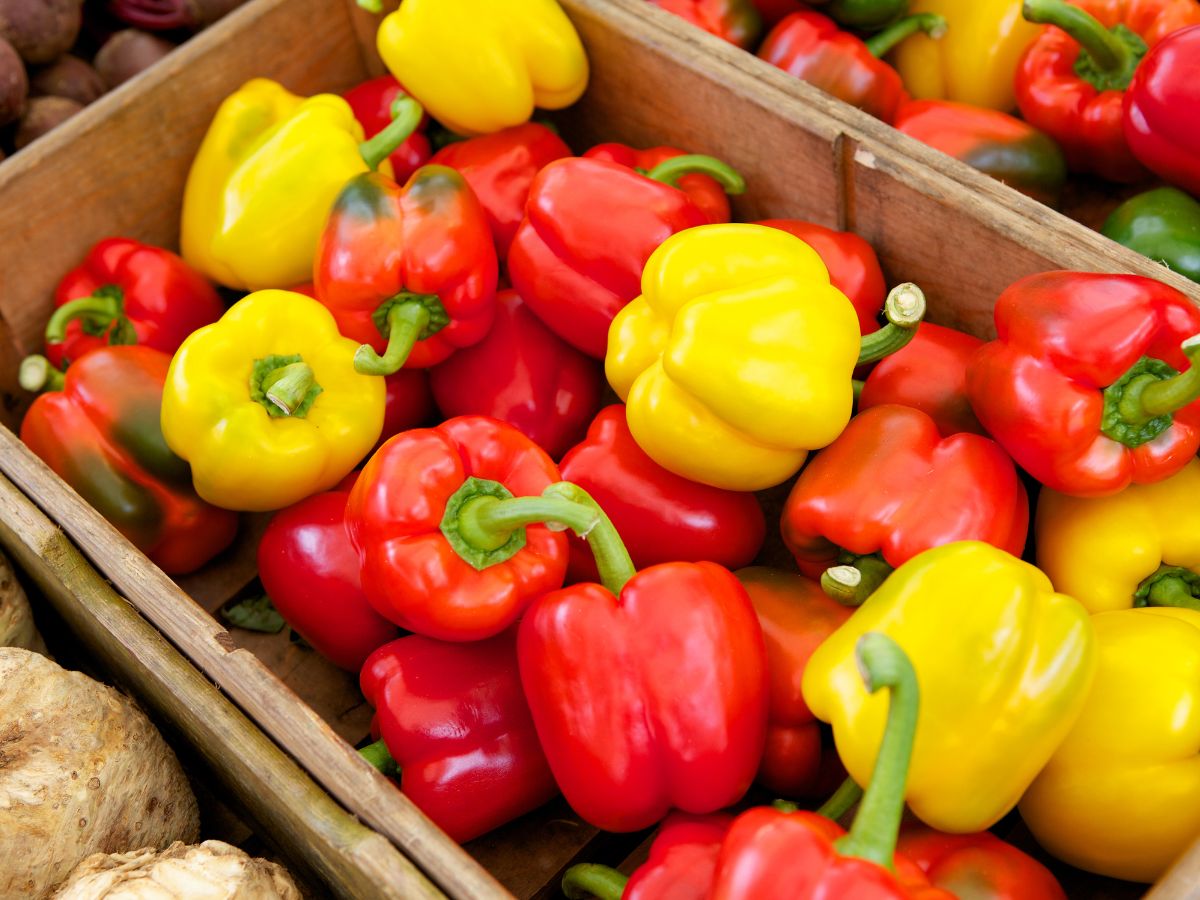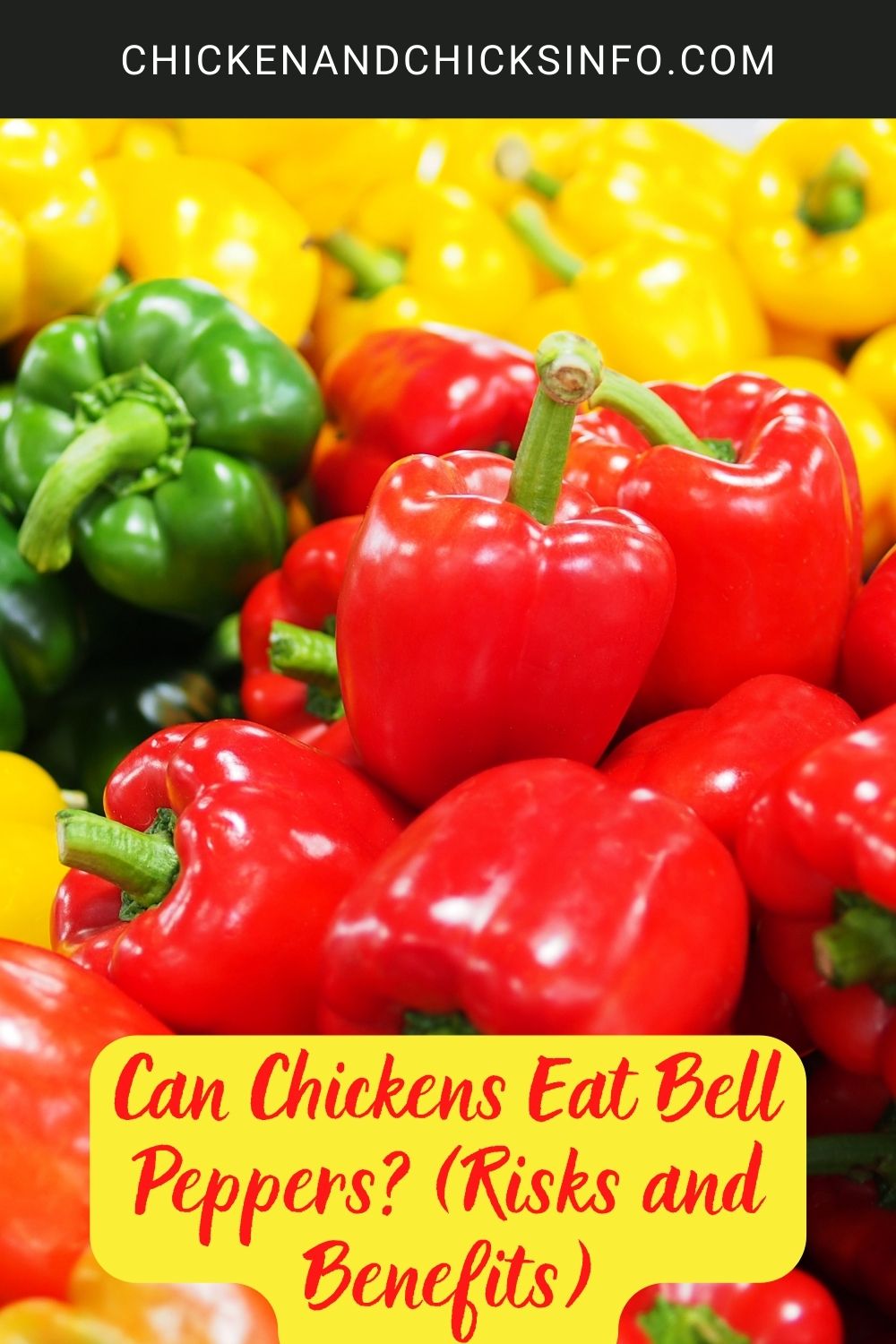
Can chickens eat bell peppers? Are the seeds ok for chickens? Does the color of the pepper make a difference?
These are all sensible questions if you use a lot of bell peppers and want to share some with your backyard chickens.
The answer is yes, it is safe for chickens to eat bell peppers. They are packed with good nutrition too, but there are some things you need to be aware of as I will explain in this article.
Jump to:
Can Chickens Eat Bell Peppers and Their Seeds?
Bell peppers are part of the nightshade family of plants. This means they contain a compound called solanine, which is known to be very toxic to chickens.
Now, I’ve spoken with a bunch of backyard chicken owners who feed their chicks bell peppers, and they tell me it’s perfectly safe.
They assure me that solanine is only in the leaves, stalks, and flowers. The fruit, which is the bell pepper, is fine. As is the seeds inside.
This does raise a little concern for me, however. Just on that basis, I don’t feed bell peppers to my chickens. But I tend to always be overly cautious about these things, I’ve never heard of it causing any problems for chickens.
How Healthy Are Bell Peppers?

The good news is that they are really healthy and packed with some good nutrition that your chickens will benefit from.
First of all, much like radishes, bell peppers have a high water content - they’re about 92% water. Making them a tasty and refreshing choice in the summer months.
They are also rich in a range of vitamins and minerals, such as vitamin C, B6, K1, A and E. As well as potassium, folate, and other goodness.
Of all the table scraps and leftovers you can throw into their run, this is one of the more nutritious options.
Related content - Did you know peppers are related to tomatoes? Check out - can chickens eat tomatoes?
What's the Difference Between Green Yellow and Red Peppers?
Green, yellow, and red peppers (and any shade in between) are all the same type of pepper from the same plant. They’re just at different stages of ripeness.
Green peppers are unripe. Yellow and orange are fairly ripe, and red peppers are fully ripe.
The reason we can buy peppers at each stage of ripeness is that the taste and nutritional content changes as they change color.
Generally speaking, the riper a pepper is the sweeter it tastes and the higher its nutritional content. That’s right, the red peppers are the best for you and your chickens.
Do Chickens Like Bell Peppers?

Want some proof chickens love eating bell peppers? Here’s a video where a bunch of chooks can’t seem to get enough of some green peppers:
What chickens will or will not eat does vary, however. The only way you’ll know if your girls like peppers is to give them some.
They might be picky about the color too, you never know. I’m not sure if cooked or uncooked matters. Cooked peppers are a lot softer and will be messier, but it might be easier for them to eat.
Be Wary of Vegetables That Are Part of the Nightshade Family
As I mentioned earlier, bell peppers are part of the nightshade family of vegetables. The name of this group of vegetables sounds menacing, doesn’t it? And they can be.
Other vegetables in this family are potatoes, tomatoes, eggplants, and some peppers like paprika and cayenne.
The reason why nightshade vegetables are toxic to chickens is because of an alkaloid compound called solanine. Solanine is toxic to a lot of animals and is even know to cause irritation and other problems when we eat it too.
It’s only present in green potatoes, green tomatoes, and the green stalks of the plants. Ripe tomatoes and potatoes are fine, as are potato skins as long as they are no green bits on them.
If a chicken ingests solanine in small amounts, you can expect diarrhea, vomiting, lethargy, and weakness. In large amounts it can be fatal.
Solanine is one of the most toxic things they can eat that may be available to them. Which is why I’m super cautious and careful when letting them eat foods from this group of vegetables.
Even if it is the safe bits like the fruit of bell peppers or ripe tomatoes.
In Summary
If you want to share some bell peppers with your chickens, go ahead. They’re packed with good nutrition, most chickens love them, and it gives you something else to add some variety into their diet.
Just keep in mind that they are part of the nightshade family. Keep everything other than the fruit - which is the bell pepper - well away from your chicks.
Also, remember the 90/10 rule. 90% of a chicken’s daily diet should come from their formulated feed. Only 10% can be made up of scraps, treats, and other goodies you share with them.





